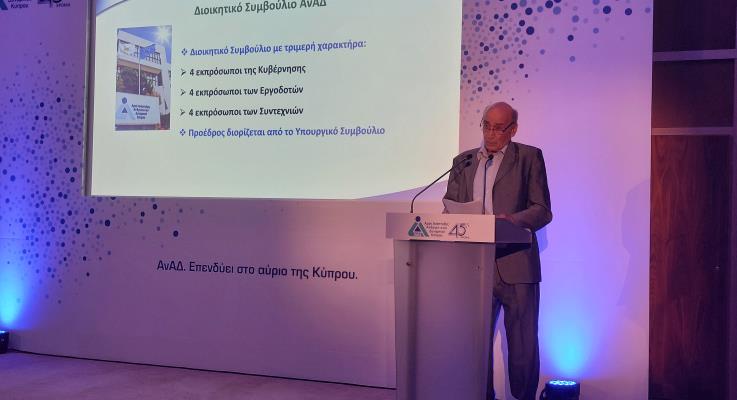Over the past five years, 275,000 individuals participated in 30,500 training programmes by the Human Resource Development Authority of Cyprus (Anad), with a total expenditure of €102.3 million, according to chairman Demetris Kittenis.
Speaking during a press conference marking the authority’s 45th anniversary, Kittenis highlighted Anad’s dedication to enhancing Cyprus’ economy by upgrading workforce skills and ensuring optimal utilisation by businesses and organisations.
He explained that as part of the Cyprus Recovery and Resilience Plan (2021-2026), Anad will implement training programmes focusing on digital skills, green and blue economy skills, and entrepreneurship.
“The transition to green and blue economies, the increased use of new technologies, automation, artificial intelligence, and new work forms significantly impact the required knowledge and skills,” Kittenis said.
He also showcased Anad’s investment in the future of Cyprus’ workforce through targeted training to reduce unemployment and promote lifelong learning for continuous skill development.
In the last five years alone, he noted, Anad facilitated 30,500 training programmes for 275,000 individuals, with training activities costing €102.3 million euros.
Additionally, 4,100 people were certified in professional qualifications, while 390 centres and 650 vocational training structures were accredited.
Kittenis also underscored Anad’s significant research contributions, such as labour market demand and supply forecasts for 2022-2032, employment and training needs assessments, as well as long-term human resources trends in Cyprus.
Moreover, he noted that Anad actively collaborates and exchanges experiences with European and international organisations on training and human resource development, including the European Network for Vocational Education and Training Information (ReferNet) and the European Network for the Early Identification of Skills Needs (Skillsnet).
Recounting the authority being founded in 1974 and becoming operational in 1979, the chairman said that Anad has significantly upgraded the knowledge, skills, and competencies of Cyprus’ workforce, boosting productivity and business competitiveness.
Initially named the Cyprus Industrial Training Authority, it was renamed to the Human Resource Development Authority of Cyprus in 1999.
It should be noted that Anad is governed by a tripartite board of directors, comprising representatives from the government, employers, and trade unions, with a chairman appointed by the Council of Ministers.
This tripartite structure has been crucial to Anad’s success and must be preserved, Kittenis stated, noting ongoing efforts to change this structure.
Kittenis traced Anad’s history, noting its development of the first vocational training programmes and its adaptation to the evolving Cypriot economy, including the tourism boom, service sector expansion, and technology integration.
He also mentioned that Anad’s research examines human resource issues across economic sectors, evaluating programmes to shape training and development strategies.
It was also reported that Cyprus’ EU membership spurred rapid growth in foreign trade, shipping, foreign and domestic investments, and modernised the business environment.
“Anad recognises the importance of diverse knowledge and skills for the future and the need for continuous adaptation,” Kittenis remarked.
Finally, he stressed that “Anad introduces specialised training programmes to adapt the workforce to new innovations, responding promptly to Cyprus’ human resource training needs in an increasingly competitive environment”.






Click here to change your cookie preferences